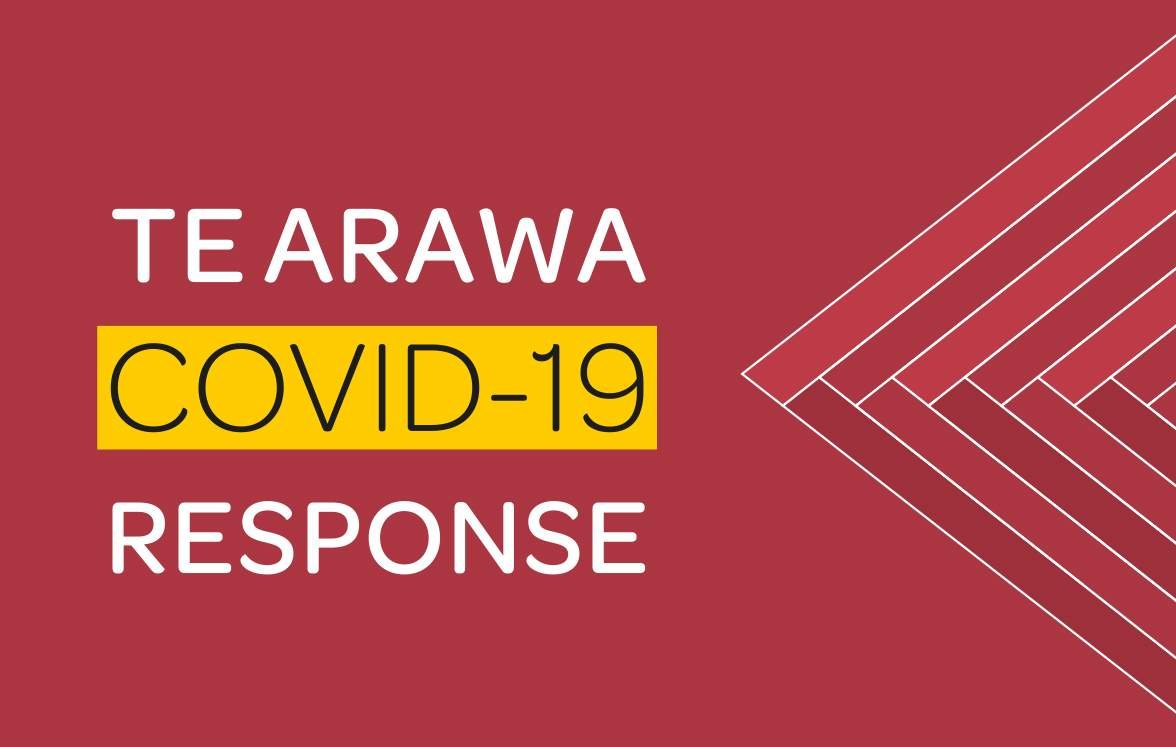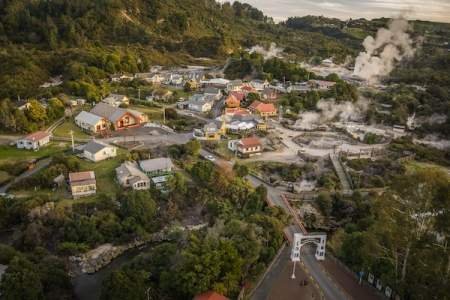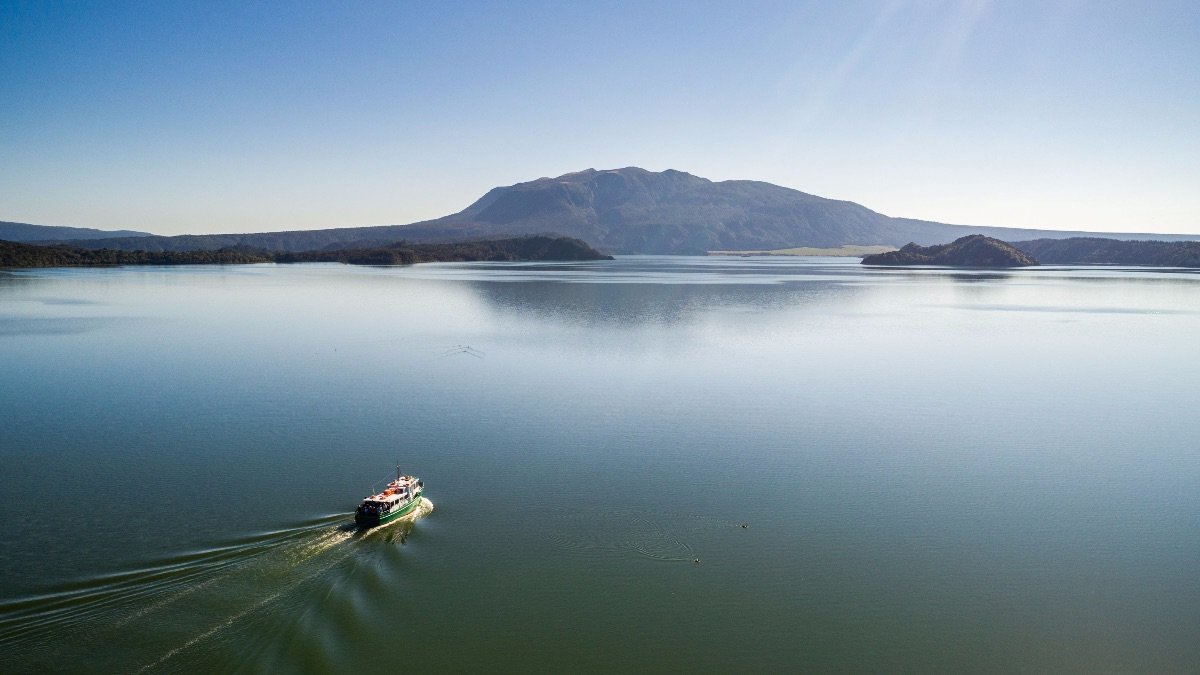What to do if your taitamariki or pēpē gets COVID-19
First – Don’t panic. This isn’t your fault. Omicron is highly contagious.
If your taitamaiti hasn’t been tested but they’re showing the following symptoms – stay home until they have been tested. Call the COVID-19 line 0800 358 5453 to get a test or visit your nearest testing station. You can find your nearest centre here
Symptoms of COVID-19
Fever
Cough
Trouble breathing
Gastrointestinal problems - sore tummy, nausea, vomiting, and diarrhoea
Headaches
Muscle aches
Loss of taste and smell
Cold symptoms e.g sore throat and/or sneezing
Omicron is a weird virus – some tamariki will get very sick, some tamariki won’t have any symptoms at all.
Testing
If you think your taitamaiti has symptoms of COVID-19, call your family doctor or phone the COVID-19 line on 📞 0800 358 5453. They will give you the most up-to-date information on testing.
If your taitamariki tests positive for COVID-19
You must isolate with them for 10 days. You will be sent a link to complete an online form, which will help identify locations you have visited and people you have come into close contact with.
How to isolate with your COVID-19 positive taitamariki
If possible, isolate with your taitamaiti and ONE parent or caregiver in another room from the rest of the whānau. Wash your hands often. Wash doorknobs and surfaces. Wear a mask as often as possible. Keep windows open to help with air flow and ventilation. If you’re hapū, see if you can have another caregiver or parent look after your tamariki so you can limit contact.
If you have a high-risk adult or taitamaiti in your whare, consider having them isolated in another room, another area of the whare, or at another family member or friend’s whare. If this isn’t possible, they should always wear a mask and limit interactions as much as possible.
Keep other people and pets in the whare away from your taitamaiti as much as possible. If you can, have your sick taitamaiti use a different bathroom from others. If that isn't possible, wipe down the bathroom often.
Keep other people and pets in the whare away from your taitamaiti as much as possible. If you can, have your sick taitamaiti use a different bathroom from others. If that isn't possible, wipe down the bathroom often.
High risk means:
• Unvaccinated
• Immunocompromised either from disease or medications
• 65 years old and older
• Hapū / pregnant
• Chronic lung disease including moderate to severe uncontrolled asthma, BPD from prematurity, Interstitial lung disease, Pulmonary hypertension, COPD
• Heart Conditions
• Chronic kidney or liver disease
• Dementia
• Diabetes
• Down Syndrome
• Smoker/Vaper
If a high-risk person in your whānau gets COVID-19 contact their specialist or hospital care team immediately.
If your whānau gets COVID-19 despite taking precautions – remember, it’s very contagious. It’s not your fault. Be kind and gentle with yourself!
If your whānau gets COVID-19 despite taking precautions – remember, it’s very contagious. It’s not your fault. Be kind and gentle with yourself!
How to look after your COVID-19 positive taitamariki
You’ve got this. Stay calm. It’s likely your pēpē has been sick before, and you’ve been able to handle it. COVID-19 is no different.
• Keep them well-hydrated.
• Monitor nappies and wees to make sure they’re drinking enough.
• Don’t worry if they’re not hungry.
• Rest often. Use paracetamol for fevers. Some tamariki might struggle with oral paracetamol if they have a sore throat. Ask your pharmacist or doctor about rectal paracetamol.
• Use nasal suction or steam.
• Make sure they rest as much as possible – screen time is fine!
• Keep a close eye on their breathing – if they have any pauses in breathing, seem to be straining to breathe or have irregular or fast breathing, or if they’re too out of breath to talk or are out of breath after walking or if they turn blue or faint – call 111 immediately.
When to get help
If your taitamaiti has a disability or is high risk – contact your paediatrician or care team as soon as they’re diagnosed.
If your taitamaiti doesn’t have a disability, is vaccinated and is not high risk take them to hospital or afterhours if:
• your taitamaiti looks really unwell – you’re their parent, trust your instincts
• they are confused or very sleepy
• they have chest pain
• they are cold, sweaty, pale or have blotchy skin
• they are dizzy
• they have very bad belly pain
Look for contractions on their chest, like pulling in between the ribs or the nostrils puffing with their breathing. If they have breathing problems: go to hospital.
If you’re not sure – call the dedicated COVID-19 Healthline, 24 hours a day, 7 days a week for free on 0800 358 5453
Again: Call 111 immediately – if your taitamaiti has any pauses in breathing, seem to be straining to breathe or have irregular or fast breathing, or if they’re too out of breath to talk or are out of breath after walking or if they turn blue or faint.
Self-care
This is a scary time for you as a parent. Remember to fill your cup if you can. Talk to your whānau and friends by phone and ask for help with deliveries of groceries.
Be kind and gentle to yourself. Consider this karakia by Mero Irihapeti to protect your heart as you care for your tamariki and whānau.
Hā ki roto | Breathe in
Hā ki waho | Breathe out
Kia tau te mauri e kokiri nei | Settle the mauri that stirs inside of me
I nga piki me ngā heke | Through the ups and the downs
Ko te rangimarie tāku e rapu nei | It is peace that I seek
Tihei mauri ora!
Protect our Whakapapa: Whānau Plan
As we all knew it would eventually, COVID-19 has arrived in our rohe.
Right now, it’s important we keep up our tikanga hauora to prevent further spread and protect our communities.
Horoia, whakamarokehia hoki ō ringaringa - wash and dry your hands
Use hand sanitiser
Wear a mask
Use the contact tracing app or record your visits.
Remember, if you’re māuiui, please stay home.
Please talk to your whānau about your own COVID plan.
Check out this link for some great advice and guidance about some of things you’ll need to think about and prepare for. Don’t wait, start now.
Please also remember to update your registration / contact details with us so that we can keep connected as we continue to navigate the pandemic together.
Government Decision, the Right One
Te Arawa welcome Government decision re MIQ
Tūhourangi Ngāti Wāhiao, Te Paetapu o Te Pākira Marae, Ngāti Whakaue and Te Arawa leaders have welcomed the Government’s announcement this afternoon that an additional MIQ facility will not be established in Rotorua.
Letter to Prime Minister
MIQ Hotels in Rotorua
We are aware the Government is considering establishing an additional MIQ facility here in Rotorua – at the Holiday Inn next to Whakarewarewa.
On Friday we wrote to the Prime Minister, Jacinda Ardern and COVID Response Minister Chris Hipkins to express our deep concerns about the proposal and its impact on our people. The complete lack of consultation with us as mana whenua is unacceptable. The negative impact of such a facility right next to our wharekai, Te Rau Aroha, and so close to our tupuna whare, Wāhiao, would be devastating.
We are seeking an urgent response from Government on this matter and won’t hesitate to take it further. We will keep you updated.
COVID-19 Vaccine Update
Tēna tātau ngā uri o Tūhourangi Ngāti Wāhiao, tēnā hoki tātau o Te Arawa whānui, e kui mā, e koro mā, nei rā te mihi maioha ki a koutou katoa i tēnei wā, te wahanga o Hine-Ngahuru.
An information hui and opportunity to receive a COVID-19 vaccine will be held on Tuesday, 25 May (12pm) at Te Pākira Marae.
To register, please email Aneta Stone: tnw.vaccine@gmail.com or text 027 637 6060.
The Latest Guidance on Tangihanga Protocols
A message from the Ministry of Health | Friday, 4 September
Rere nei aku roimata pērā rawa i te awa haehae nei i te whenua – ko te whakaaro ki a rātou mā kua mene ki te pō, ko rātou ki a rātou, ko tātou te pito ora ki a tātou.
Tēnā tātou katoa.
On Sunday, 30 August, all of Aotearoa shifted to Alert Level 2. In Tāmaki Makaurau however, there are still extra restrictions in place to keep our communities in safe. At Level 2 in Tāmaki Makaurau, gatherings are still limited to 10 people, or 50 are allowed for funerals and tangihanga that are registered with the Ministry of Health. Gatherings for the rest of Aotearoa will remain limited to 100 people at Alert Level 2.
When whānau travel out of Tāmaki Makaurau, we are asking them to be considerate and do things like wear masks in public places. We’re also asking them to consider restricting themselves to groups of no more than ten. This will help keep our iwi, hapū, and whānau safe, especially our most at-risk whānau members.
No matter the Alert Level, we must continue to maintain a high level of vigilance in order to protect ourselves and our whānau from the threat of COVID-19.
Heoi anō, I wanted to use this pānui to update you on the latest guidance for tangihanga. Specifically, I want to talk about traveling out of Tāmaki Makaurau, contact tracing, physical distancing and serving kai at hākari.
Whānau travelling out of Tāmaki Makaurau for tangihanga
Whānau do not have to apply for an exemption to travel between Alert Level 2 regions to either transport a tūpāpaku or to attend a tangihanga.
We do however ask our whānau in Tāmaki Makaurau to think of the following when travelling out of the region:
If you have any cold or flu symptoms at all, you should not travel – stay at home and call your health provider to see if you should get tested.
You must wear a face covering or mask on a plane and on public transport, and we encourage you to wear one at the airport and your destination. It’s a highly visible way of showing you are being careful and looking out for the wellbeing of others, as well as protecting yourself.
Avoid attending gatherings with more than ten people.
Be considerate and ensure you practice good hygiene: practice physical distancing and as always, wash your hands and cough and sneeze into your elbow.
Keep track of your movements, using the NZ COVID Tracer app if you can.
Contact tracing
Contact tracing is an important element of our response to COVID-19. Funeral directors (or organisers of the tangihanga) are responsible to have systems and processes in place to enable contact tracing. They must also display an official NZ COVID-19 Tracer App QR code.
As well as displaying a QR code, you must have a contact tracing register to record the details of all persons attending any part of the funeral process. This register should include:
exact day and time the event took place
full names of all attending the event
one method of contact (eg. email address or mobile phone number).
If funeral directors or organisers of the tangihanga keep contact tracing records, they should be kept secure for two months and once they are two months old, they should be destroyed. The information in the register must only be used for the purpose of contact tracing and only shared with the Ministry of Health or district health boards, should this be required. Attendees should not have access to anyone else’s personal information.
Read more information about getting your official QR code.
Physical distancing
We are all being asked to play our part to refrain from physical contact to prevent the spread of COVID-19. At tangihanga, we should aim to keep 1 metre physical distance where contact tracing and other public health measures are possible.
It is the responsibility of the funeral director or organiser of the tangihanga to ensure whānau can maintain physical distance in any defined space. If physical distancing cannot be guaranteed in a defined space, then the number of attendees allowed at that venue may be lower than 100 people (or 50 in Tāmaki Makaurau at a registered funeral or tangihanga).
Whānau should also consider suspending hongi and harirū to help prevent the spread of COVID-19 and keep our most vulnerable whānau members safe. People who are sick with cold or flu-like symptoms should not attend tangihanga.
Serving kai
The serving of food and drink for hākari is permitted provided the venue can meet the physical distancing and hygiene requirements for food preparation and serving. This includes groupings of no more than 10 people eating together, kai should be served as individual portions and not from a buffet, and no alcohol is to be served or consumed on the premises.
It is recommended gatherings following the burial, nehunga and cremation are kept short (under two hours).
All frequently touched surfaces and objects (eg, where food is prepared and served, and kitchenware) should be thoroughly cleaned before and after each gathering. People may also choose to use disposable kitchenware to make the cleaning process easier.
For more information on funerals and tangihanga, visit the Ministry of Health website.
If you have any questions, please feel free to contact the team at: maorihealth@health.govt.nz
Mā te Atua koutou e manaaki hei ngā rangi e tū mai nei,
Nāhaku me aku mihi aroha,
John Whaanga
Deputy Director-General | Māori Health Directorate
Travel between regions for tangihanga
A message from the Ministry of Health | Friday, 21 August 2020
“Strict travel restrictions are in place for regions at Alert Level 3 to help reduce the spread of COVID-19. Any travel into or out of regions at Alert Level 3 is not permitted unless an exemption is granted.
Exemptions for travel into a region at Alert Level 3 for the purposes of tangihanga may be approved provided the following conditions are met:
masks should be worn in accordance with Alert Level 3 guidelines
no overnight stays within the Alert Level 3 region
whānau must go directly to the venue and leave from there to commence their journey back to an Alert Level 2 region
stops for refuelling and other comfort stops should be completed before entering or after leaving the Alert Level 3 region.
If whānau want to seek exemption to transport their tūpāpaku into an Alert Level 3 region, they must be transported directly by a funeral director for immediate burial. The same conditions as above must be met.
Exemptions for travel from a region at Alert Level 3 into a region at Alert Level 2 will be considered on a case by case basis. This extends to the transport of deceased persons into an Alert Level 2 region.
Whānau who wish to travel through an Alert Level 3 region for the purposes of a funeral or tangihanga must also apply for an exemption.
You can learn more exemptions and how to apply, online here.
I want to acknowledge those who have already had to face the harsh reality of losing a loved one during lock-down or Alert Level 3 – aroha nui ki a koutou katoa. Mā te Wāhi Ngaro tonu koutou e poipoi, e manaaki. The approach we have taken will help reduce the spread of COVID-19 to regions that are not at Alert Level 3. We believe it is the best way to keep our communities, especially our at-risk whānau, safe and protected against COVID-19. I want to reassure you that this is only intended for a short period of time. Cabinet will be reviewing the current restrictions on Monday, followed by an announcement at 4pm on the same day
For more information on funerals and tangihanga, please visit our website.
If you have any questions, please feel free to contact me or my team at: maorihealth@health.govt.nz
Mā te Atua koutou e manaaki hei ngā rangi e tū mai nei,
Nāhaku me aku mihi aroha,
John Whaanga
Deputy Director-General | Māori Health Directorate
Events Postponed
As a consequence of the Prime Minister's announcement that Aotearoa New Zealand will move to Alert Level 2 (and the greater Auckland area to Alert Level 3) on Wednesday, 12 August at midday for three days, we have made the decision to postpone all events sponsored by Tūhourangi Tribal Authority until further notice.
This includes Rua Wiki (kai) this Thursday (13 August) evening and Wānanga on this Friday and Saturday (14-15 August) are postponed until further notice.
Visit our COVID-19 page for information and assistance.
Na Te Whare Korero o Tūhourangi
– Rangitihi Pene, Ngarepo Eparaima, Hakopa Tapiata, Matetu Mihinui, Aneta Morgan, Watu Mihinui
FREE COVID-19 Drop-in Clinic
Friday, 22 May | 10am – 12pm
Whakarewarewa (Te Rau Aroha carpark)
Free flu immunisations for:
Over 65
Chronic health conditions
Hapu mama
Tamariki 0-4 years with a history of respiratory illness
Tamariki under 5 who were hospitalised with measles.
No appointment necessary. Click here for all of the information.
Hunting & Fishing at Level 2
At 11:59pm on Wednesday, 13 May, Aotearoa will move to Alert Level 2. With this move comes specific guidelines to keep us all safe – you can read the guidelines here.
It’s important to follow the Level 2 guidelines, especially keeping gatherings to a maximum of 10 people. We have some updated guidelines for hunting and fishing during Level 2 below.
• Timberlands are issuing hunting and recreational permits under COVID-19 Level 2 restrictions with permits processed from 12 May and activity resuming from 23 May. Apply for a permit here.
• Normal hunting and some additional COVID-19 rules will apply, these will be sent out with permits.
• Timberlands have appointed Kepa Winiata as the Tūhourangi delegate to issue hunting authorisation permits. His contact number is 027 932 1185. Timberlands acknowledge and appreciate the patience shown from all forest users while working to the COVID-19 restrictions.
• Bylaws for Rotorua lakes to protect Te Arawa taonga are now in place. Anyone who wants to collect fish from freshwater taonga species will need to get a puka whakamana (permit) from Te Arawa.
• The bylaws also put restrictions on the size, quantity and methods of harvesting taonga species to protect them for the future.
• To find out what species are covered by the bylaws, click here. A total closure of kōaro is in pace to protect the unsustainably low numbers.
• Remember to check, clean and dry your fishing equipment when you are moving from one waterway to another to stop the spread of catfish.
• The duck hunting season was originally postponed and will now commence on Saturday, 23 May.
• All Fish & Game and Ministry for Primary Industries (MPI) regulations and restrictions remain in place and will be enforced - only take what you need.
Please take care and ensure you take all of the usual hunting and COVID-19 precautions.
Stay safe, kia hoki mai ki to whānau!
Hunting & Fishing at Level 3
There has been a lot of kōrero about being able to gather kai during the lockdown. The transition to Alert Level 3 does allow a bit more movement for us all – but under some strict guidelines.
The Department of Conservation has extensive information about hunting and fishing under Alert Level 3.
Please stay safe whānau and take all of the usual hunting and COVID-19 precautions, including maintaining social distancing at all times.
Important message from Kaingaroa Timberlands:
All Timberlands managed forests (Kaingaroa, Whirinaki, Rotoehu and Waimangu) remain closed under Level 3 and the forest gates are locked and being monitored 24/7. We’ll let you know about the opening dates for Recreational Access Permits for hunting, fishing and game bird shooting as soon as we have updates.
Kaingaroa Timberlands/Timberlands Limited have issued a statement regarding their position on hunting:
“Timberlands Limited are not issuing hunting and recreational permits under COVID-19 Alert Level 3 restrictions. This is primarily so we can focus on the health and safety of people returning to work but was also considering the two following Alert Level 3 conditions:
No motorised hunting is permitted, which accounts for the majority of hunting in Kaingaroa Forest.
People must keep local, and the Kaingaroa Forest estate operates across three regions (BOP, Waikato and Hawkes Bay), making it difficult for hunters to adhere to this rule.
At this stage the number one priority is to transition workers back into the forest safely while operating under COVID-19 Alert Level 3 restrictions.”
Timberlands have appointed Kepa Winiata as the new Tūhourangi delegate to issue hunting authorisation permits for when hunting is permitted. His contact number is 027 932 1185.
Conditions:
No hunting on public conservation land
Hunting and fishing are only permitted on foot and overnight trips aren’t allowed
Using quad bikes, off-road bikes, helicopters, boats or other motorised vehicles is a no go
You need to stay in your region and stick to your bubble
You need to follow all other hunting and fishing guidelines
All fishing must be land based
Road Check Points will continue – ensure you have the appropriate permit
You’ll be able to hunt locally on private and Māori-owned land under Alert Level 3, but you need the Land Trust / Incorporation’s or landowner’s permission and stick to the rules (including any hunting club rules).
Fishing
You can fish locally, but this needs to be land-based fishing only and at a spot that is close to your whare.
All Fish & Game and Ministry for Primary Industries (MPI) regulations and restrictions remain in place and will be enforced – only take what you need and if you want to share kai with extended whānau and friends, you need to adhere to the guidelines under Alert Level 3.
Please check, clean and dry your fishing equipment when you’re moving from one waterway to another to stop the spread of catfish.
Duck Hunting
The duck hunting season has been postponed from Saturday, 2 May until two weeks after New Zealand eventually moves to Alert Level 2. The season will also end later.
Permits
To avoid disappointment or being turned around at a check point, make sure you have the appropriate hunting or fishing permit with you (paper or E-copy). If you’re hunting on private land, you need permission from the owner.
COVID-19 Response, Where to get help
If you need urgent assistance please reach out to the Te Arawa Whānau Ora office.
You can also contact Deliah Balle on 027 471 1051.
Don't forget to check out the Te Arawa Covid-19 Response page.
Other useful links:
Worried about paying for kai, rent, etc?
Work and Income NZ has support for urgent costs now like food, accommodation, power, etc. To find out if you qualify for this you can call 0800 559 009 or visit Work & Income New Zealand.
Eligible for the flu jab?
You can call your GP or your medical centre, or all Healthline on 0800 358 5453. All over 65 have access to free Flu jabs. Visit Work & Income New Zealand.
TTA Office Closed
IMPORTANT NOTICE
The Tūhourangi Tribal Authority office at 100 Sala Street, Rotorua is closed until further notice due to the COVID-19 pandemic.
Please email us with any queries:
admin@tuhourangi.iwi.nz or phone 027 291 3002
Na mātou,
Trustees
Tūhourangi Tribal Authority













